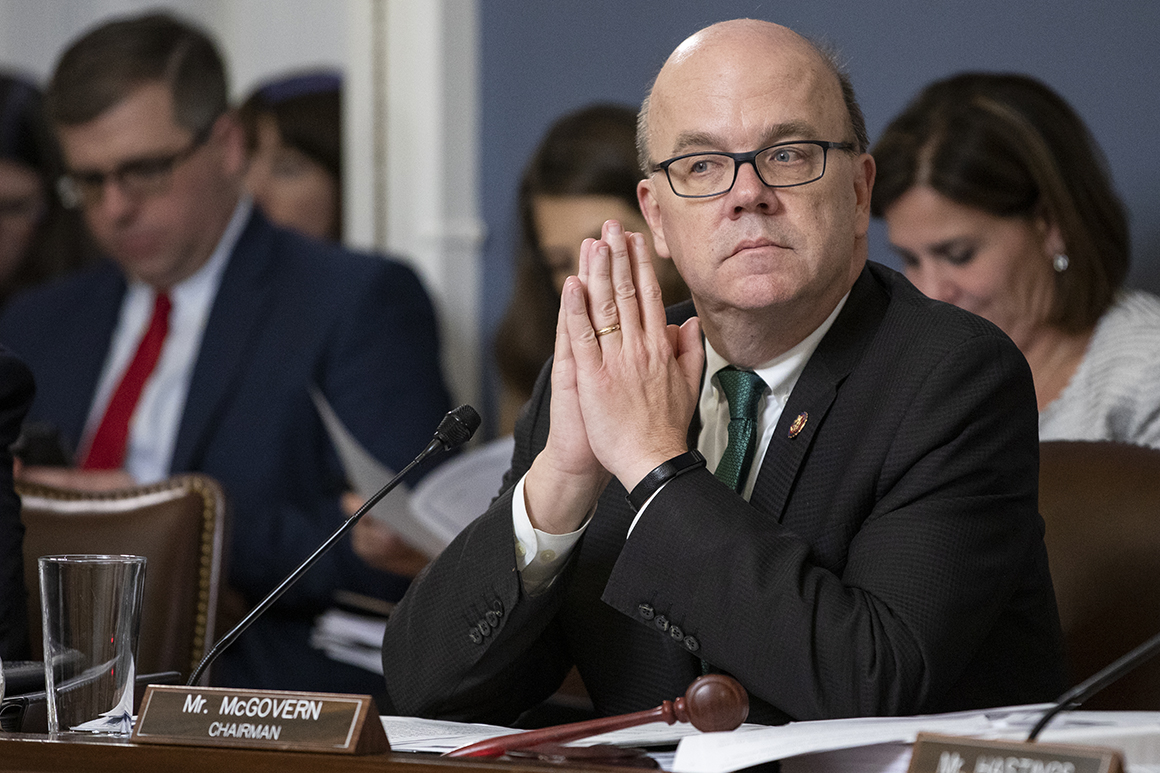Congressman James McGovern (D-MA) submitted a statement for the Congressional Record, addressing Bahrain’s crackdown on peaceful protestors on the 10th anniversary of the pro-democracy movement in Bahrain. Americans for Democracy & Human Rights in Bahrain (ADHRB) commends and supports Congressman McGovern’s statement and the concerns that he raises.
Click here for the full text of the statement
Click here for PDF version
TENTH ANNIVERSARY OF BAHRAIN’S PEACEFUL PROTESTS
______
HON. JAMES P. McGOVERN
of massachusetts
in the house of representatives
Friday, March 19, 2021
Mr. McGovern. Madam Speaker, last month marked the tenth anniversary of peaceful protests that spurred great hope for change in Bahrain, only to have those hopes dashed.
On February 14, 2011, thousands of Bahrainis took to the streets in peaceful protests throughout the country to call for democratization and social and economic reform.
Bahraini security forces attacked the peaceful protesters, first with pepper spray and flash-bangs, then with rubber bullets and finally with shotguns.
The protesters remained peaceful, and in the days that followed, the protests grew.
The Pearl Roundabout in the capital city, Manama, became the hub with hundreds camping there and sharing food.
Then came “Bahrain Bloody Thursday.”
At about 4:00 a.m. on February 17, 2011, while protesters including women and children were sleeping, security forces stormed the area with tear gas. They threw stun grenades and fired shot guns at the terrified people.
Bahraini and international media were attacked. Paramedics and ambulance drivers who responded were also reportedly attacked and told not to help injured protesters.
Four protesters were killed and as many as 300 were injured. Hundreds were detained, including medical personnel, and the police pursued others to nearby villages to arrest them as well.
Following “Bahrain Bloody Thursday,” Nicholas Kristof wrote in the New York Times, “When a king opens fire on his people, he no longer deserves to be ruler.”
As leaders from around the world condemned the violence, it seemed at first that the door to reform had been opened. The King’s acceptance of the recommendations of the Bahrain Independent Commission of Inquiry kept hope alive for quite some time.
But ten years later little has changed for the Bahraini people. I welcomed the release of Nabeel Rajab in June 2020, who spent nearly eight of the past nine years imprisoned for peaceful protest and criticizing government policies.
But many prisoners of conscience remain behind bars, and it is well past time to release everyone else imprisoned for exercising their fundamental rights. These include human rights defenders Dr. Abduljalil Al-Singace, Abdulhadi Alkhawaja, Ahmed Humaidan, and Naji Fateel, and Sheikh Ali Salman.
Brave human rights and opposition leaders continue to call for the release of prisoners, accountability for grave human rights violations, and political reform.
Madam Speaker, the people of Bahrain have been waiting ten long years for a sign that the arc of justice is bending toward them. I am tremendously heartened by statements made by Biden Administration officials confirming that the U.S. commitment to human rights will be reflected in our foreign policy. We cannot serve as a beacon of hope while turning a blind eye to human rights violations.
What should that mean when it comes to Bahrain? Here are some ideas.The U.S. should pause arms sales to Bahrain. The Department of Defense should develop a contingency plan for relocating the U.S. 5th Fleet out of Bahrain.
The Administration should make full use of Global Magnitsky authorities to sanction Bahraini officials who are known to have committed terrible human rights abuses and have suffered no consequences for their actions. Accountability must return to the bilateral agenda.
The State Department should work for the release of all prisoners of conscience. And the State Department should put reforms back on the bilateral agenda. What reforms are we talking about?
To start with, the Bahraini government should: end the prohibition on political societies, decriminalize all speech, allow national and international press to operate without state intervention, stop rendering its citizens stateless, strip the National Security Agency of its power to arrest, bring its anti-terrorism legislation into line with international human rights standards, integrate its security forces, and end discrimination against the majority Shi’a population everywhere it exists.
Taking these steps would not transform Bahrain into a democracy. But they would go some way toward improving the country’s domestic human rights situation.
I look forward to working with the Biden Administration on these and other ideas to make sure that U.S. policy toward Bahrain truly protects the human rights of the Bahraini people–and therefore truly contributes to America’s security.





